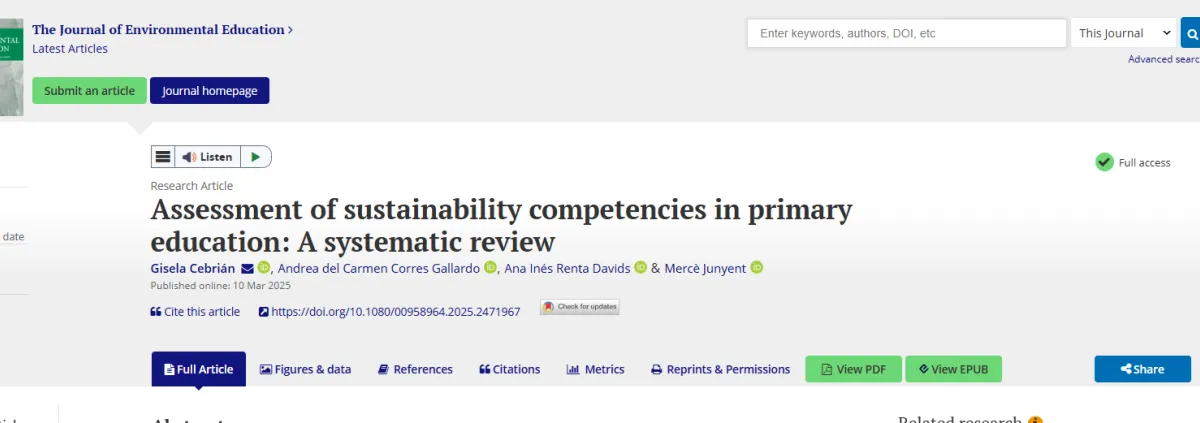Dear all,
I warmly invite you to read this very interesting study part of EDUCLIMAD project by Gisela Cebrian and all on "Assessment of sustainability competencies in primary education: A systematic review".
I used AI to make a short summary of the main findings and recommendations, I think it is pretty accurate. It is just to trigger your interest, you better read the whole study of course.
Main Findings
Pedagogical Approaches:
- Sustainability competency assessments are mostly interdisciplinary and classroom-based.
- This contradicts previous studies that linked sustainability education mainly to subjects like science, geography, and civics.
- A wide range of teaching methods is used, including experiential, project-based, cooperative, and hands-on learning.
- Participatory approaches (e.g., action learning, participative inquiry) are rarely used despite their importance for sustainability education.
Geographical Distribution & Trends:
- Most studies come from Europe, likely due to EU-supported sustainability competency frameworks.
- The discourse on sustainability competencies is primarily shaped by European and North American perspectives.
- A significant increase in publications after 2015 aligns with global initiatives like the SDGs and the 2030 Agenda.
Assessment Methods:
- Most studies rely on summative assessment, particularly questionnaires.
- Few studies explicitly assess sustainability competencies using clear theoretical frameworks.
- The lack of validated frameworks highlights the need for tools like GreenComp.
- Identified challenges include gender bias, small sample sizes, selection bias, and difficulty applying findings across different contexts.
Implications for Research & Practice
- Develop and validate a mix of quantitative, qualitative, and self-assessment tools to track student progress in sustainability competencies.
- Combine different assessment tools (e.g., questionnaires, focus groups, interviews, coursework) for a comprehensive evaluation.
- Conduct longitudinal studies to measure competency development over time and across education levels.
- Define progression levels for sustainability competencies at different educational stages.


Please log in or sign up to comment.